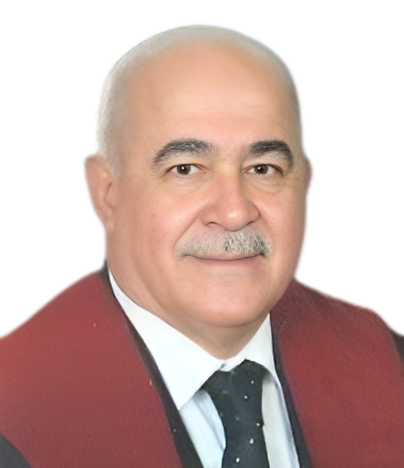Overview:
The Expert and Crisis Management Committee stands as a cornerstone within the Union of Afro-Asian Universities (UAAU), reflecting our commitment to academic excellence, strategic foresight, and operational resilience. This committee is entrusted with the critical task of assessing emerging threats, advising on proactive measures, and orchestrating rapid and effective responses to crises that may impact educational institutions and their communities. By combining the expertise of leading scholars, crisis management professionals, and policy advisors, the committee develops comprehensive strategies designed to safeguard institutional integrity and sustain the continuity of academic operations under even the most challenging circumstances.
Recognizing that the landscape of higher education is increasingly complex and susceptible to a wide range of disruptions—from political and economic turbulence to natural disasters and cyber threats—the committee operates as a dedicated hub of knowledge and action. Its role is not only to manage crises as they arise but also to anticipate potential risks and implement robust systems that minimize vulnerabilities and ensure long-term sustainability. In doing so, the committee reinforces the union’s overarching commitment to excellence, stability, and innovation.
Leadership

Prof.Dr. Muhammad Mahdi Saleh
Head of the Experts and Crisis Management Committee
Minister of Trade of Iraq
Mission:
Our mission is to empower the Union of Afro-Asian Universities with a sophisticated, multi-layered approach to crisis management that ensures preparedness, swift response, and strategic recovery. We are dedicated to developing and disseminating best practices, fostering an environment of continuous improvement, and enabling all entities within the union to navigate adversities with confidence and resilience.
Vision:
We envision a future in which the Union of Afro-Asian Universities is universally recognized as a model of institutional resilience and strategic innovation. Through proactive risk management and an unwavering commitment to excellence, we aim to transform challenges into opportunities for growth and academic advancement, thereby setting a benchmark for crisis preparedness in the global education sector.
Core Values:
- Excellence: We maintain the highest standards in every initiative, ensuring that our analyses, strategies, and responses are of unparalleled quality.
- Resilience: Our commitment lies in creating systems that not only withstand crises but also enable rapid recovery and continuous improvement.
- Integrity: We operate with full transparency, accountability, and adherence to ethical principles, fostering trust among all stakeholders.
- Innovation: By harnessing the latest technologies and methodologies, we drive forward-thinking solutions that redefine crisis management.
- Collaboration: We cultivate a spirit of unity within the union, encouraging interdisciplinary partnerships and coordinated efforts to achieve superior outcomes.
Strategic Objectives and Initiatives:
Comprehensive Risk Assessment
Our first line of defense is a rigorous, systematic evaluation of potential threats. This involves:
- In-Depth Analysis: Conducting detailed assessments to identify vulnerabilities across a broad spectrum of risks, including political instability, economic fluctuations, natural disasters, public health emergencies, and cybersecurity challenges.
- Early Warning Systems: Implementing advanced monitoring tools and data analytics to detect early signs of potential crises, thereby facilitating prompt and informed decision-making.
- Scenario Planning: Developing predictive models and conducting simulation exercises to prepare for various crisis scenarios, ensuring that our strategies are robust and adaptable.
Rapid and Effective Crisis Response
In times of crisis, time is of the essence. To ensure an immediate and coordinated response, we have established:
- Dedicated Response Teams: A specialized rapid response task force comprising leading experts in crisis management, logistics, and communication.
- Operational Continuity Protocols: Detailed guidelines and procedures designed to ensure that critical functions and academic activities continue without interruption, including the swift implementation of remote learning and digital engagement solutions.
- Advisory Services: Comprehensive consultation support addressing legal, financial, and administrative challenges, enabling institutions to navigate the complexities of crisis situations with precision and clarity.
Policy Formulation and Framework Development
Long-term stability requires robust policies and structured frameworks that underpin effective crisis management. To this end, we focus on:
- Best Practice Frameworks: Developing and continuously updating standardized protocols that serve as benchmarks for crisis management and operational continuity across the union.
- Collaborative Policy Development: Working in close partnership with key stakeholders to formulate policies that protect academic and research institutions during emergencies, ensuring they are both practical and forward-looking.
- Strategic Advocacy: Engaging with policy-makers and international organizations to influence the creation of supportive regulatory environments that enhance institutional resilience.
Capacity Building and Knowledge Advancement
Sustainable resilience is built on a foundation of continuous learning and innovation. Our initiatives include:
- Targeted Training Programs: Designing comprehensive training modules and simulation exercises for university leaders, crisis management teams, and support staff, aimed at building the necessary skills for effective crisis response.
- Research and Innovation: Promoting interdisciplinary research that explores novel approaches to crisis management, risk mitigation, and operational continuity, and disseminating these findings through conferences, publications, and collaborative workshops.
- Knowledge Sharing Platforms: Establishing robust digital and in-person forums for the exchange of best practices, lessons learned, and innovative strategies, thereby fostering a culture of proactive learning and collective improvement.